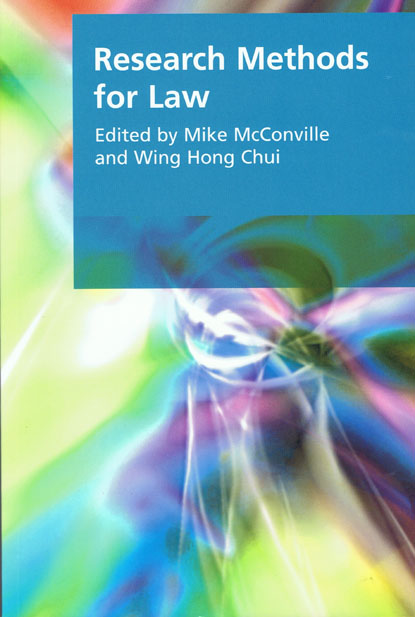
Designed to serve postgraduate students and academics teaching research methods, this series provides discipline-specific volumes which explore the possibilities and limitations of a range of research methods applicable to the subject in question. Research Methods for Law introduces undergraduate and postgraduate students to available methods of research - legalistic, empirical, comparative and theoretical - drawing on actual research projects as examples.
The book is written by a team of contributors with a broad range of teaching and research experience in law, criminal justice and socio-legal studies. Designed to serve as a handbook for research methods courses with its coverage of the principal research traditions, the book will also appeal to students of related disciplines who have an interest in legal issues including those from criminology, sociology, psychology, government, politics and social administration. The rich mix of general lessons, theoretical engagement and practical examples will be of real value to students